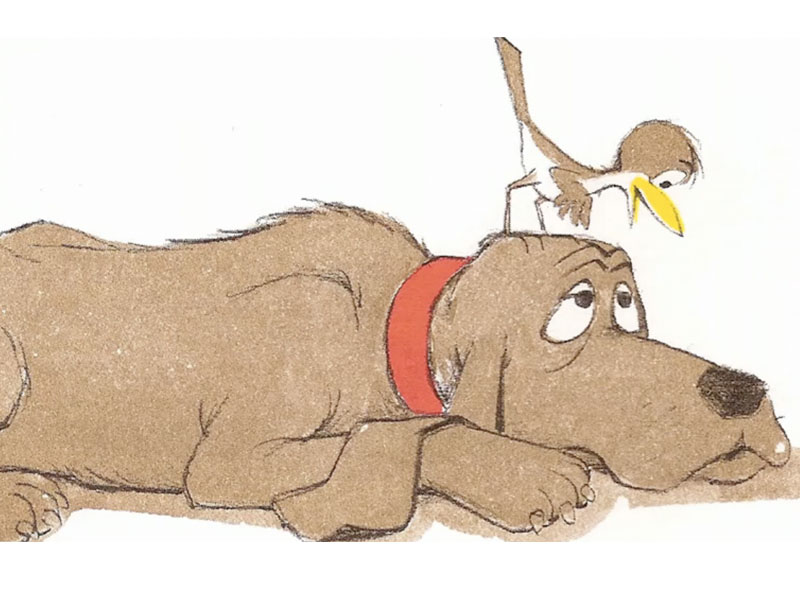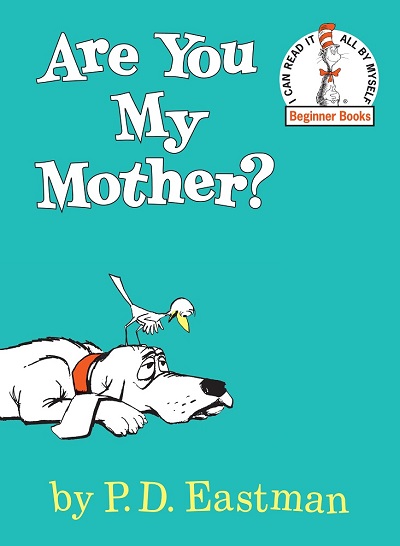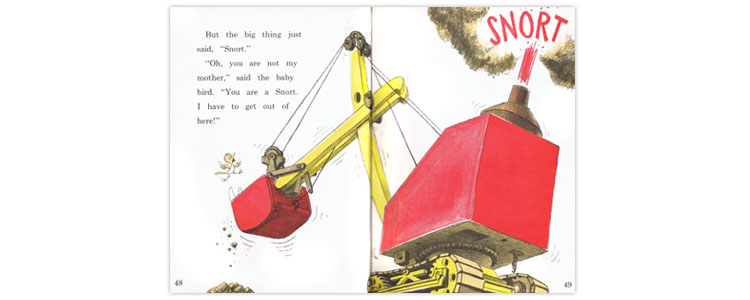
At preschool, Alec, who’s five, is assigned ten to fifteen minutes of independent reading a day. “Read what?” I wonder, accustomed to literacy textbooks or, at the very least, a reading list. Complete freedom of choice always throws me off. But we have an assignment, so read we will. Alec settles on a book, a conscious and independent choice. P.D. Eastman’s Are You My Mother? Published by Penguin Random House. is for kids who are just learning to read. It looks a lot like a Dr. Seuss book: bright illustrations, a large font, a minimal amount of text on each page, and, most importantly, a simple, but captivating plot. Just what the beginning reader needs.

I have to say, reading aloud in English is quite difficult. Even my students, who are nineteen and twenty, trip up over some words, when asked to read aloud. It’s just that English has so many pronunciation rules and the same letter can have many different sounds depending on those around it. It’s not easy for a five-year-old child to remember all these rules and the school introduces them gradually, starting from those that are easiest.
For example, “y” is pronounced differently in the words “play” and “party.” When he came to the word “party” in the book, Alec read it like the familiar “play,” especially since the first letter in both words was the same. At school, they haven’t explained the different sounds of this letter yet and he has to remember words individually. The teacher gave us a list of words to study. The idea is that children will recognize the words when they see them and pronounce them correctly. This list includes commonly used words like articles and pronouns, which tend to be tricky, and then it expands to include phonetic rules and more vocabulary.
Are You My Mother? is built on this idea of recognition and repetition, that is, memorizing words. The plot, of course, is cyclical. While the mother bird flies off to find a worm, a baby bird hatches from the egg. With his mom gone from the nest, the baby bird decides to go looking for her. Alec was fascinated by the baby bird’s adventures. He’s so small but so brave: he sets off all alone! The bird meets a cow, dog, kitten, boat, and even a huge “Snort” and asks each of them: “Are you my mother?”
There are only one or two sentences on each page. The bird speaks with animals and objects he encounters on his journey, and so the search takes sixty-five pages. It’s a real book, one that a child can proudly say he read on his own.
I ask Alec to read the parts of the book he likes best. He opens the page where the bird speaks with the steam shovel: “But the big thing just said ‘Snort.’ ‘Oh, you are not my mother,’ said the baby bird. ‘You are a Snort. I have to get out of here!’”

I asked Alec what the bird must be feeling at that moment: why does he want to leave? “He’s really scared!” Alec said, looking at the picture. Then, he thought a bit and added: “If I lost my mom, I would be scared too.” Why did he like this page then? “Because the bird thinks the steam shovel is his mom! That’s so funny! And the steam shovel snorts!”
It’s clear why Alec so enjoys reading this book on his own. It’s not just that he knows how to read, but the fact that he, a five-year-old boy knows perfectly well who the bird’s mother is. Here, Alec is grown-up. Wise and knowing, he understands that neither the plane, the cat, nor the cow can be the bird’s mother. And since he’s the youngest at home, I’m certain he likes the feeling of being the “expert.” Alec likes the word “dummy,” and for him the little bird is a dummy, silly and naive. Compared to the bird, Alec is already a grown up—after all, he knows exactly who his mom is. Moreover, Alec knows that the Snort is actually a steam shovel and can’t possibly be the bird’s mother.
Of course, by the end of the book the bird returns to his nest and mom is found. “Here he’s saying, ‘Mom!’ He’s really happy now,” Alec explains, pointing to the picture. On the last page he reads how the slightly older and certainly wiser bird declares: “Yes, I know who you are. You are not a kitten. You are not a hen. You are not a dog...You are a bird and you are my mother.“ This way, the child repeats all the book’s key words—the names of animals and things—and reinforces their pronunciation. And celebrates along with the baby bird.
“And if you lost Mom, what would you do?” I ask, just to make sure.
“I’ll stay home with my older sister Varya and wait for you. And if the house is messy, we’ll clean up,” says Alec confidently.
Maria Boston, Wisconsin, USA
Translated from the Russian by Alisa Cherkasova
Picture of the book cover: Penguin Random House
Follow us on Facebook.
